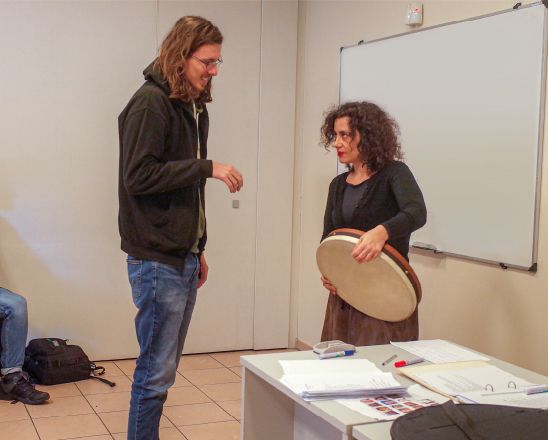
Advanced Ancient Greek I: Thucydides
In this course we introduce students to the work of the great historian of Classical Athens, Thucydides. C305 consists of the reading of one or more of the books of his History of the Peloponnesian War.
Thucydides is part of the war, which he relates. He contracted the deadly plague, served as a general, and was exiled for having failed in the task of saving Amphipolis from Brasidas. Thucydides is considered to be the first real historian who constructed his own work with “scientific” methods. He makes use of accounts taken from witnesses, archives, inscriptions, and so on. Thucydides focuses on facts rather than on hearsays.
In C305 students face the challenge of understanding Thucydides, his world, and language. He refined and flavored his prose with archaistic and poetical tones. Students improve their reading skills and at the same time expand their knowledge of the grammar and syntax of 5th c. Greek. Exams in writing, a short research paper, exercises on the board and sight-reading are important components of the course.
We also examine Thucydides’ methodology, language, and style in comparison to that of contemporary authors. Aspects pertaining to the place of the text in its historical context are also part of the discussion. Is the work simply a historical account or also a farewell to a dying world? Does Thucydides remain impartial, and how his personal tastes affect his writing, if so? Does his work reflect the values of the Athenian society, what values are those, and so on? It is the overall purpose of the course not only to improve the reading skills of the students but also to make clear the role of Thucydides and his work in the history of Greece.
Prerequisite: three semesters of Ancient Greek



